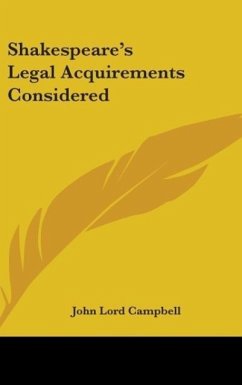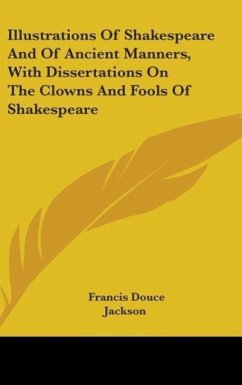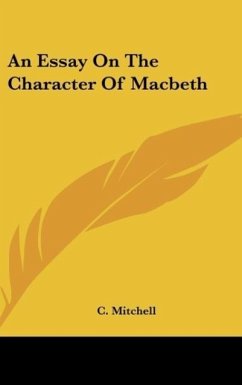1859. In a letter to J. Payne Collier. The 19th century saw a Golden Age of books supporting the proposition that Shakespeare possessed an extensive and unerring knowledge of the law. Although the first mention was made by lawyer and Shakespeare editor Edmund Malone in 1778, it was not until 1858-1859 that the idea began to take hold with the publication of two books: William Rushton's Shakespeare a Lawyer, and Lord Chief Justice John Campbell's Shakespeare's Legal Acquirements Considered. Lord Campbell, by far the most influential, gives his unequivocal opinion of Shakespeare's use of legal terms: I am amazed, not only by their number, but by the accuracy and propriety with which they are uniformly introduce. While Novelists and Dramatists are constantly making mistakes as to the law of marriage, of wills, and of inheritance, to Shakespeare's law, lavishly as he propounds it, there can neither be demurrer nor bill of exceptions, nor writ of error.
Hinweis: Dieser Artikel kann nur an eine deutsche Lieferadresse ausgeliefert werden.
Hinweis: Dieser Artikel kann nur an eine deutsche Lieferadresse ausgeliefert werden.








